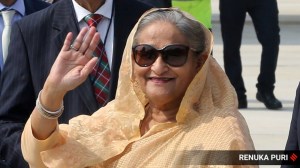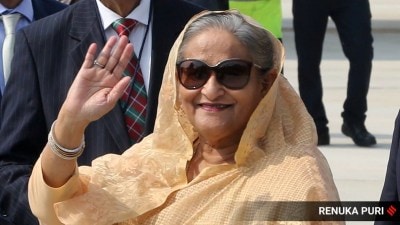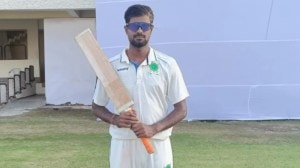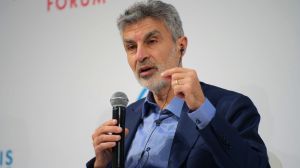Coverage under Ex-Servicemen Contributory Health Scheme (ECHS) for all “invalidated” past and future officer cadets and eligible dependents; hike in ex-gratia benefits equivalent to rank of Lieutenant/ Flying Officer; implementation of previous recommendations for disability pension; one-time compensation for immediate relief; periodic medical reassessment for resettlement, reservation in higher education; better insurance.
These are among the key suggestions made by Senior Advocate Rekha Palli, who was appointed Amicus Curiae by the Supreme Court to look into the case of officer cadets discharged from top military institutions due to disabilities suffered during training — a matter in which the apex court had taken suo motu cognizance of a series of investigative reports in The Indian Express.

 The Indian Express report dated August 11 on military cadets disabled in training
The Indian Express report dated August 11 on military cadets disabled in training
On Tuesday, a bench of Justices B V Nagarathna and R Mahadevan directed that these suggestions be placed before the Army, Navy and Air Force services headquarters for them to frame a scheme for the rehabilitation of these cadets. It granted six weeks to complete the exercise.
Story continues below this ad
According to the Amicus, “till date about 400…cadets have been boarded out from all the six academies taken together, i.e, National Defence Academy (NDA), Pune; Indian Military Academy (IMA), Dehradun; Officers Training Academy(OTA), Chennai; Officers Training Academy, Gaya; Air Force Academy (AFA), Hyderabad; and Indian Naval Academy (INA), Kerala”.
It is “estimated that about 40-50 cadets are medically boarded out annually from these institutes, with 10% of these injured cadets suffering such serious injuries so as to render them unfit for any employment whatsoever”, the Amicus stated in her submission to the court.
This, the Amicus stated, makes it clear that the “number of these cadets who are medically boarded out while undergoing training is not very large”. “…consequently, taking meaningful steps to ensure that these cadets receive their rightful dues — so that they may transition to a life of dignity and purpose, rather than leading lives of isolation — would involve only a negligible financial outlay, forming a minute fraction of the considerable funds allocated to the three armed forces,” she submitted.
Perusing the submission, Justice Nagarathna said, “We understood that the most important submission is that the recruits (soldiers) who do not complete the training are getting the benefits, but the officers to be, who are not able to complete their training, are left high and dry. To that extent there is a lot of heartburn. Otherwise, they would have been officers. So, what can be done for this.”
Story continues below this ad
A bench presided by Justice Nagarathna had earlier taken suo motu cognizance of reports published by The Indian Express on August 11 about how these officer cadets have been battling severe disability with mounting medical bills and poor benefits.
The Indian Express reported that according to rules, these cadets were not entitled to the status of ex-servicemen (ESM), which would have made them eligible under ECHS for free treatment at military facilities and empanelled hospitals, since their disabilities took place during training before they were commissioned as officers.
And, unlike soldiers in this category who are entitled to ESM status, all that these officer cadets got is an ex gratia payment of up to Rs 40,000 per month depending on extent of disability — an amount that falls far short of basic needs, they say, with medical expenses alone costing, on an average, nearly Rs 50,000 per month or more.
The Indian Express also reported that while Defence Minister Rajnath Singh had okayed a proposal last year to increase the ex gratia awarded in such cases, the file was caught between the Defence and Finance ministries.
Story continues below this ad
Following the series of reports, on August 29, the Ministry of Defence granted free medical facilities under ECHS to these officer cadets. And, on September 4, the Supreme Court asked the Centre to consider enhancing monetary compensation and insurance cover for these cadets.
The Amicus submitted that though the Government had extended ECHS cover, “this benefit has not been extended on a prospective and uniform basis. Instead, its application remains confined to past cases as a one-time special dispensation”.
“This approach is fundamentally unfair, arbitrary, and inconsistent with the principle of equal treatment. There is, therefore, an urgent need for framing a consistent and comprehensive policy that ensures all invalidated cadets — past and future — receive automatic and assured ECHS coverage, which benefit should include their eligible dependents,” the Amicus noted.
The reference to disability pension is based on recommendations made in 2015 by the Lt Gen Mukesh Sabharwal (Retd) Committee. The court said “it is not known as to what further steps have been taken on the said report by the concerned departments”.
Story continues below this ad
Appearing for the Centre, Additional Solicitor General Aishwarya Bhati submitted that Bhati said “there are many good suggestions in the Amicus’ note”. They “could be considered by the experts at the service headquarters and thereafter recommendations could be made by them to the Ministry of Defence and subsequently the Ministry of Defence as well as the Ministry of Finance could jointly consider the recommendations and (their) response… could be placed before this court”, Bhati said.
In her submission, the Amicus noted that the “bright and young cadets who embody the aspirations of young men and women who volunteer to serve the nation and are boarded out due to disabilities acquired as a result of their training for military service, cannot be left in a vacuum of uncertainty”.
“Having once worn the uniform with pride and trained with the hope of serving the nation to the extent of the ultimate sacrifice, a medical board-out mid-way leaves these cadets feeling betrayed and left behind by the very system they aspired to dedicate their lives to,” the Amicus noted.
“This sense of being forgotten, at such a young and vulnerable stage, besides the financial and other hardships faced by them and their family members, often leads to deep emotional and psychological distress, often triggering anxiety, depression, and self-doubt and therefore, a structured psychological and educational counselling by trained professionals is needed,” the Amicus submitted.
Story continues below this ad
It said that the suggested measures “cannot compensate for the loss of a lifelong dream to serve the nation in uniforms and cannot adequately compensate for the sacrifices made by these cadets and their families”. “There is an urgent need for a national policy framework that ensures rehabilitation, fair compensation, educational continuity, psychological support, and lateral absorption into government services,” she submitted.

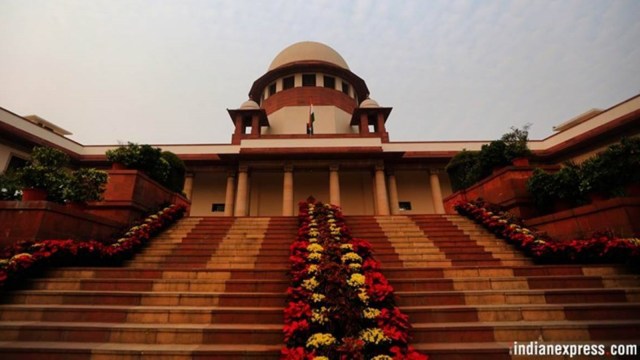

 The Indian Express report dated August 11 on military cadets disabled in training
The Indian Express report dated August 11 on military cadets disabled in training
